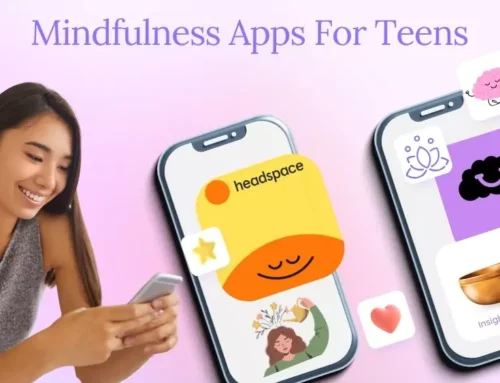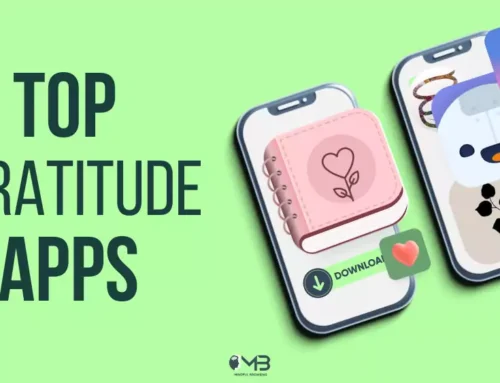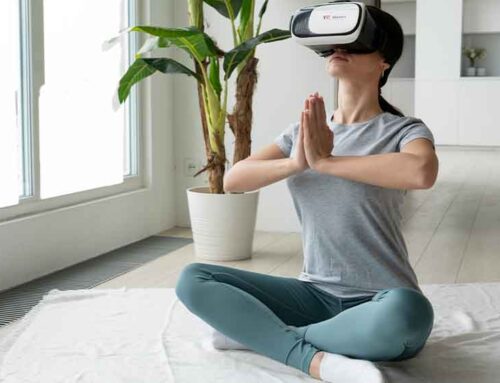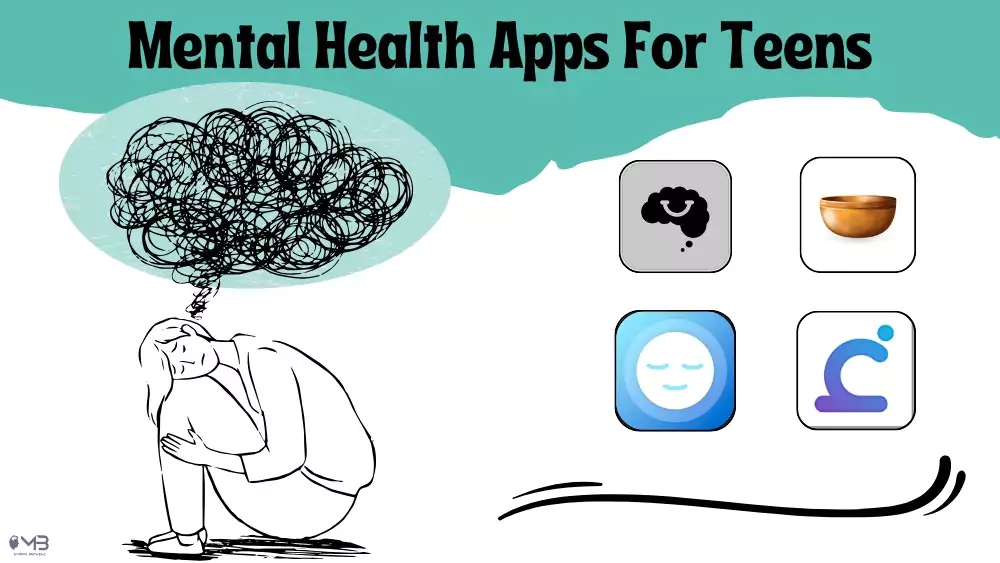
Picture this: It’s 2 am and you see your child in their bed looking at the ceiling, unable to fall asleep, because their mind is full of racing thoughts; “What if I fail?”, “What is wrong with me?”, “Why can’t I make friends?”.
Meanwhile, you stand there nervous and worried, wanting to help, but every “Let’s talk about it” pushes them further away because they don’t want awkward conversations.
What if the solution was in their pocket this whole time? A safe space where they can unburden themselves, meditate and learn to regulate their emotions in a better way. We’ve rounded up five free, expert- backed mental health apps for teens that can turn panic into calm. Keep reading as relief might just be a tap away!
1. Insight Timer
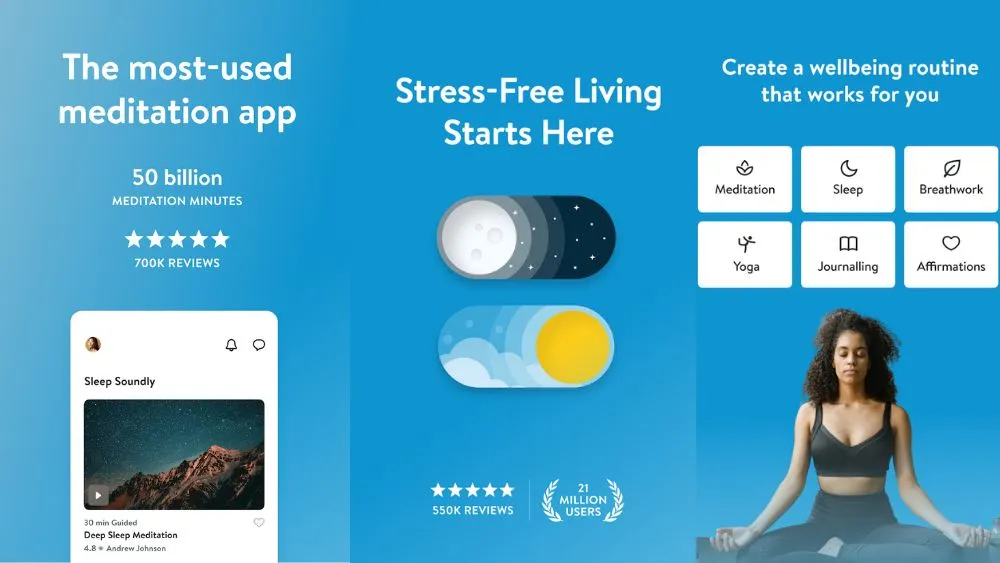
Insight Timer is one of the world’s largest free meditation libraries. Covering meditation, music, and talks led by teachers and professionals. This app is highly recommended by psychologists at Psychology Today, praising its free evidence-inspired practices like sleep talks, relaxing music, anxiety playlists. Especially the trauma-sensitive and DBT-informed tracks, apart from other mental health reminders.
Parents and teens highlight its free meditation services and the community feature where it lets users see how many people are meditating live, which feels motivating.
2. Smiling Mind
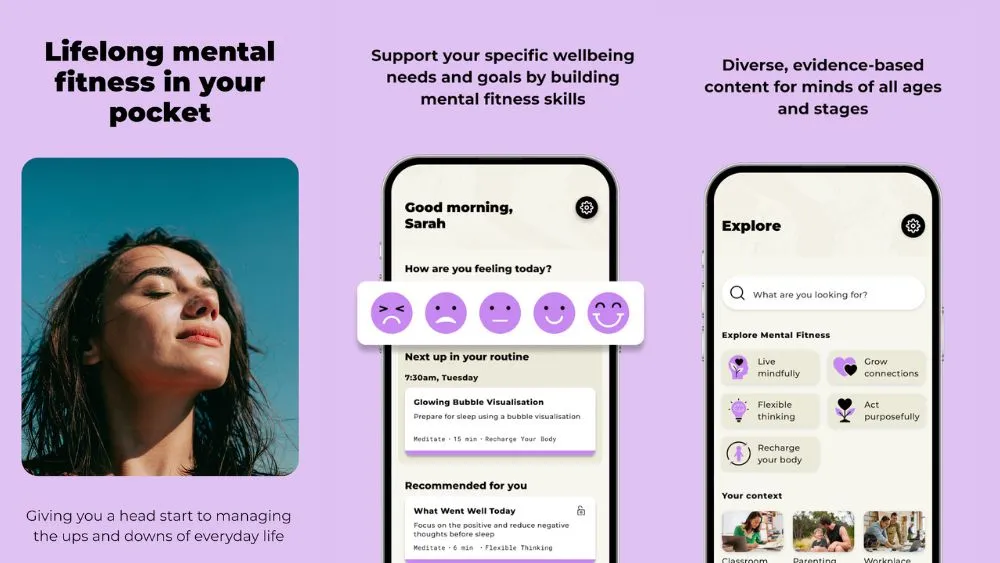
Developed by a non-profit Australian foundation, Smiling Mind offers 100% free, age-specific mindfulness programs for teens which is why it is used in schools worldwide.
Parents appreciate its ad-free and login-free interface that guarantees privacy. It’s a favourite amongst therapists who praise its structured teen modules and DBT-mini modules. This can help teens learn how to manage stress and anxiety.
This app can be used by children as young as 10 years old, making it suitable for all youngsters. Studies cited by doctors at WebMD have shown improved mood and resilience with using this app making it one of the top free youth mental apps.
3. MindShift
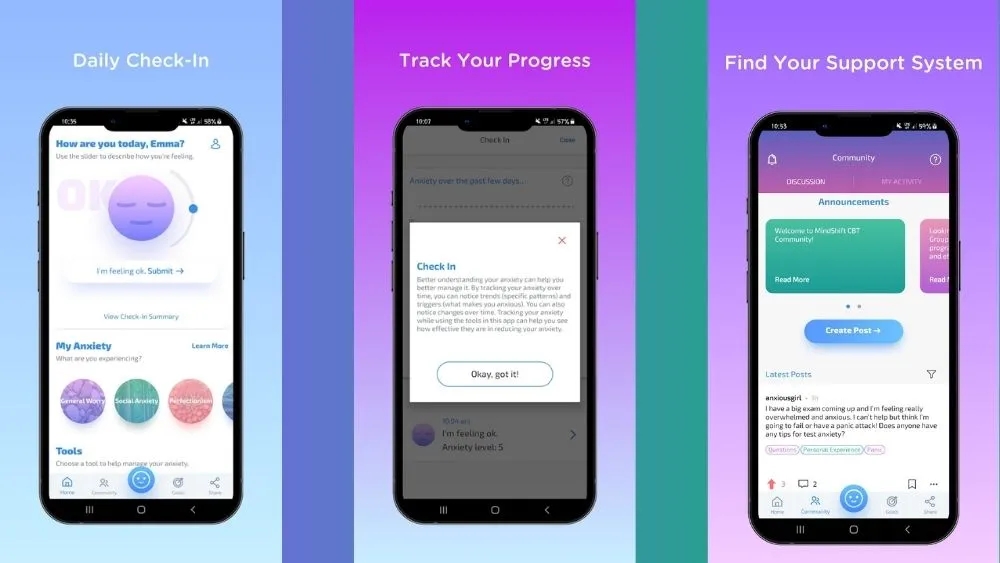
Mindshift uses proven CBT techniques to tackle teens aged 13+ with stress, anxiety, panic and worry. Once again, this app requires no email sign-up, which protects a teen’s privacy.
Its prominent features include the “Worry Journal” and “Chill Zone”. It is praised by therapists for being an effective CBT tool.
Most importantly, teens love the “Emergency Chill” button, which provides instant relief (e.g. through box breathing, muscle relaxation, etc). Cited and endorsed by doctors, this might be just the app you’ve been looking for!
4. Calm Harm
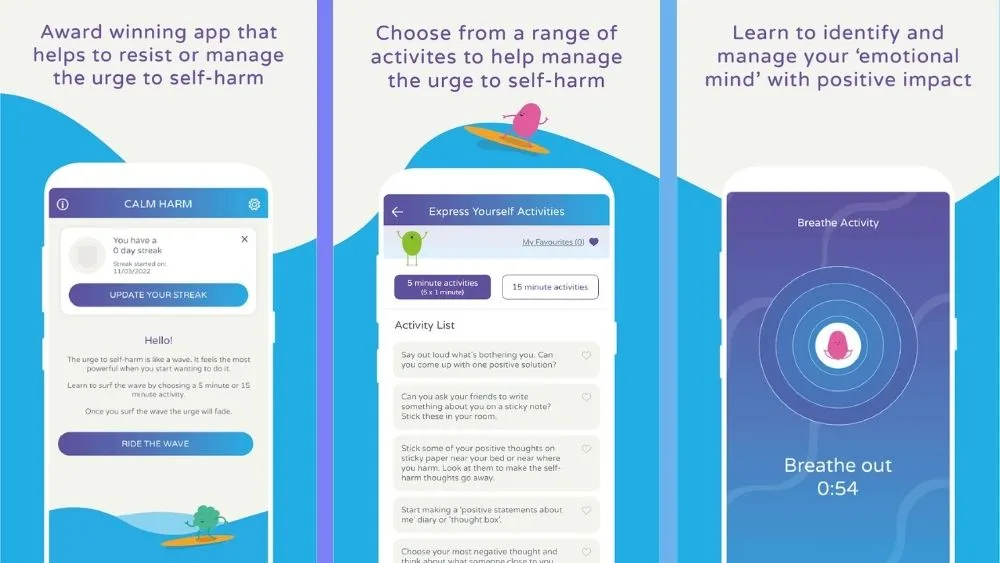
Calm Harm was created by NHS England’s Live Well team (led by practitioner psychologists in the UK). It is officially a part of the NHS digital mental health toolkit.
It is a free DBT-based app to help teens resist and overcome self-harm urges via six skill categories: Comfort, Distract, Breathe, Release, Express, and Change.
TeenWell, therapists, and professional handouts from the American Psychological Association highlight their role in self-harm prevention. This app truly gives teens immediate support when they need it the most.
5. Woebot
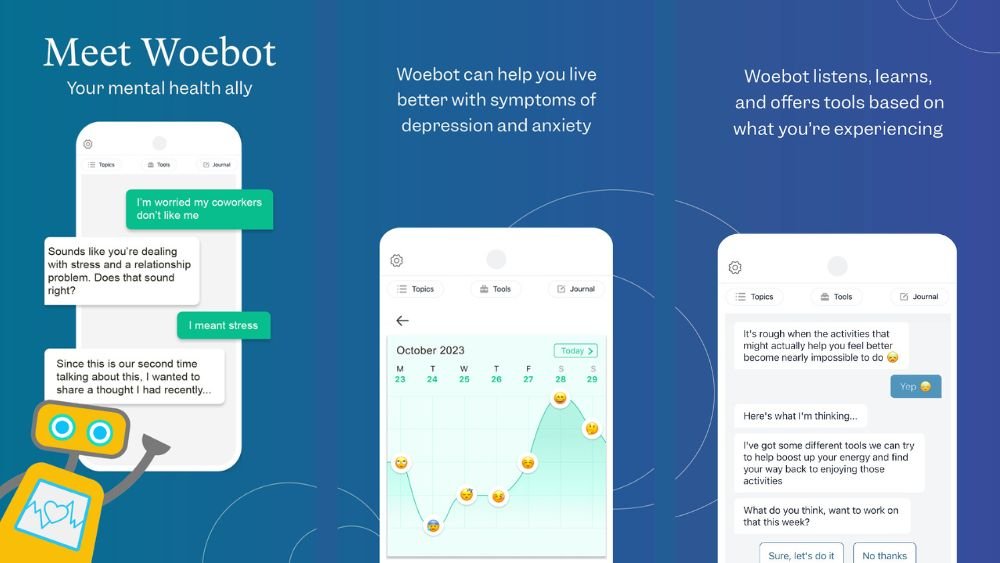
If a teen ever feels like they need someone to talk to but they don’t want to talk to their parents, this app might help. Woebot is an AI-driven chatbot that delivers CBT-based therapy in the form of a conversation.
Like other friendship apps, this app can make them feel like they are talking to a friend, if talking to those friends isn’t an option.
Backed by peer-reviewed trials, using this app has resulted in significant reductions in youth anxiety levels. It feels like a ‘listening ear’ to them that is available 24/7, and guides them through mood tracking and thought reframing.
E.g. If a teen is facing issues with their friends and it’s stressing them out, it can calm them down and teach them true friendship goals and maybe suggest fun things friends can do together.
What Should a Teen Look For When Choosing A Therapy App?
When choosing an app for yourself or, if you’re the parent, for your child. Your first focus should be credibility and privacy. Look for apps which are built around evidence based approaches like Cognitive Behavioural Therapy and Dialectical Behaviour Therapy.
CBT helps teens identify negative thought patterns like “I’m worthless” or “I can’t do anything in life”, to replace them with balanced, healthy self-talk and positive mental health goals.
DBT combines CBT principles with techniques like mindfulness and emotional regulation. They are provided by mindfulness apps, gratitude apps, or meditation apps.
Ideally, the app should be cited, peer-reviewed and trusted by therapists, doctors, parents and teenagers themselves. In addition, the app should comply with COPPA( Children’s Online Privacy Protection Act) to ensure that no data or private information is leaked. Given below are apps that are in line with these recommendations.
Why Teens Need Mental Wellness Apps Today?
Today’s teens face more pressure than ever; between juggling school work, friends and relationships, and facing endless anxiety of “what’s next?”. It’s no wonder that most of them are depressed or anxious.
In fact, according to JAMA, clinically diagnosed depression in U.S. youth increased by 55.6%, and clinically diagnosed anxiety without depression increased by 31.1%.
These results underscore the importance of accessible mental health services like free mobile health apps for teens where they can get their worries off their chest, and simultaneously learn healthy digital habits.

